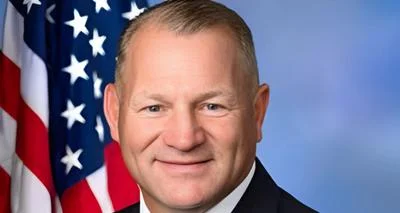Thank you, Mr. Chairman. It is good to be here this afternoon at the first of the subcommittee’s seven scheduled hearings.
As we begin hearings on the FY 2016 budget requests for the Departments of Housing and Urban Development and Transportation, I would like to congratulate the Chairman on his new role. I look forward to working with you in this coming year, and I am hopeful that we can continue this subcommittee’s history of bipartisanship, openness, and transparency.
I would also like to take this opportunity to welcome Mr. Cuellar to the subcommittee, as well as the new Republican member, Mr. Jolly. We have a great roster this Congress, Mr. Chairman, and I want you to know that the Democratic Members are ready to get to work.
I join the Chairman in welcoming Secretary Castro to our subcommittee this morning in his first appearance as the Secretary of HUD. While you have some big shoes to fill, I look forward to getting to know you better and working with you throughout this Congress.
The FY 2016 budget request for the Department of Housing and Urban Development is $41 billion, a $5.4 billion or 15.16% increase over last year’s enacted levels. While this request might seem very generous, in the context of previous budgets, it is still relatively low -- $166 million lower than the FY 2008 enacted level.
Before we turn to the HUD budget request in detail, I would be remiss if I didn’t spend a moment discussing the overall budget environment. The Budget Control Act budget agreement is the law of the land. While the Ryan-Murray agreement gave us a temporary respite from sequestration through FY 2015, lower sequestration levels will return in FY 2016. I am concerned that the self-imposed austerity in the Budget Control Act -- putting almost the entire burden on discretionary programs, while leaving the main drivers of the deficit untouched -- has severely limited our ability to invest in our nation’s key infrastructure needs.
In 2011, a HUD study indicated that there was a capital improvement backlog of nearly $26 billion in America’s public housing stock. To make matters worse, capital needs accrue at $3.4 billion per year, yet we haven’t funded the Public Housing Capital Fund at more than $2 billion in the last 4 years. The HOME program, the only dedicated source for affordable housing construction in this bill, has fallen from $1.8 billion in FY 2010 to $900 million in FY 2015. Community Development Block Grants experienced a similar reduction over the same period. While these funding crises are not as dramatic as a bridge collapse, a train derailment, or a water main break, it is clear that we are neglecting our nation’s housing infrastructure.
Because more than 90 percent of the President’s request is to keep families that are currently housed in assisted housing in their units in the coming year, a simple maintenance of effort, there is not enough wiggle room in this budget to invest in key capital projects that both create jobs and provide the affordable housing needed to allow Americans to live productive and fruitful lives.
As in years past, the receipts from the FHA and GinnieMae are critical for making this bill work. Again, this budget request assumes declining revenue from FHA premiums. While these declining receipts are a sign of an improving economy, this subcommittee has come to rely on these funds to support community development programs in the bill. Without sufficient and consistent funding for CDBG and HOME, the livability and economic competitiveness of our communities suffer. I hope to discuss this at length today.
Given the budget constraints, I am pleased to see that the budget request includes $250 million for the Choice Neighborhoods program, the successor to the popular and successful HOPE VI program. In my district, I have seen first-hand how the HOPE VI program transforms communities. Additionally, I am excited about the Department’s push to include more construction dollars for Housing for the Elderly and Housing for the Disabled. These two vulnerable populations deserve our support, and I am hopeful that we can get to work on additional housing options to meet their growing needs.
The budget request also includes funding to increase the current number of Tenant-Based Rental Assistance vouchers by 67,000. The Committee should not see this item as a new spending item, but instead as a restoration of the vouchers lost in 2013’s sequestration. We look forward to learning more about your plan to reserve these vouchers for specific high-needs populations, like victims of domestic violence, the homeless and disconnected families.
I am also pleased that the budget request includes a slight increase to the Housing Opportunities for Persons with AIDS (HOPWA) program. However, I remain frustrated that the authorizing committee has not updated the funding formula since the creation of the program, leaving areas of the country like mine without our fair share of housing dollars. It is time for Congress to make a common sense update to the HOPWA formula to reflect demographic changes in the HIV/AIDS population. I appreciate the Administration’s inclusion of a proposal to modernize the formula in your budget, and I want to work hand-in-hand with you to finally get that done by the end of the 114th Congress.
Mr. Secretary, I look forward to hearing your testimony today and I look forward to working with you on these important programs.
I yield back.
Source: U.S. Department of HCA







